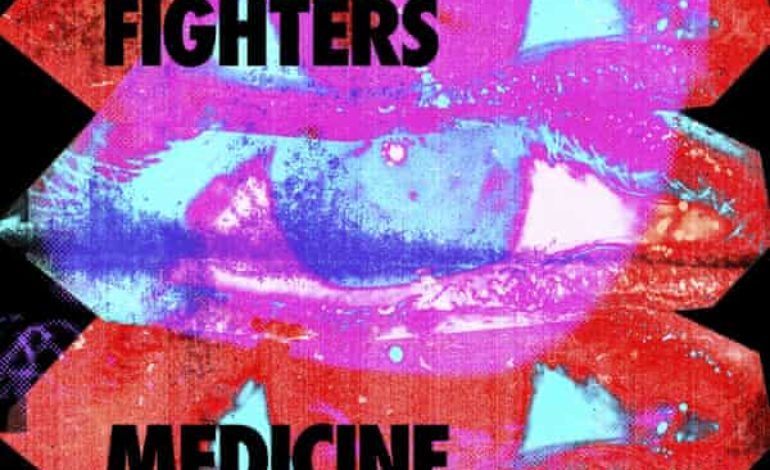

Foundationally dependent, implicit music
There are bands that strive to sound different, and there are those who try to sound new by recycling their own sounds. Foo Fightersʻ newest pop-oriented, stadium swinging LP, Medicine at Midnight, is made for an audience and has a recycled sound. It feels larger, but at 39 minutes, Medicine at Midnight is the shortest Foo Fighters album to date.
World-renowned for their style, sound and repertoire, Foo Fighters have established themselves in music already. The band is consistent. But frontman Dave Grohl chooses an alternative way to change the sound of the band, as to take a different path in their music like David Bowie—referring to this album as their “Let’s Dance,” like Bowie’s 1983 hit song. Whether they record in a garage, someone’s home or a multi-million-dollar studio, Grohl understands acoustics to a point. But the house which they recorded Medicine at Midnight—a 1940s construction—had a paranormal feeling, which may have helped them.
Grohl told NME, “When we walked into the house in Encino, I knew the vibes were definitely off, but the sound was fucking on.” They ended up using a nanny cam for when they weren’t recording, as instruments became mysteriously out of tune and tracks were deleted—though, in a way, it enhances their sound.
“Making a Fire,” the album’s opener, is an example of this. It begins simple, then spills truthful verses and reconvenes back to simplicity with climactic expression. The salvation-like gaps between mics were filled by Grohl’s eldest daughter and gifted musician, Violet. “Shame Shame” seems to be the song’s counterpart, as it is reluctant to change. This song, previously released in 2020, is a narration about desire, with no relief. A repetitive rhythm induces discomfort for the listener, intentionally.
As the second single released, “No Son of Mine” marks the extremities of their musical boundaries. Almost Motörhead-like, it is a continuous spiral of riffs and elemental music notes. It seems to mask a lot of other discrepancies in this album, making it one of the better songs. It has a haunting vibe and gets people’s heart to race with it, characteristics of any good rock song. Comparably is the track “Holding Poison,” with breaching climaxes and the underlying anti-classical grunge which the Foo Fighters embody. However, this song seems to slip with open hi-hat disco beats.
On the other end of the spectrum, “Waiting on a War” is more melodic. This song seems manufactured, meant to raise stadiums of thousands of people in one harmonious sing-along. Grohl’s delicate vocals seem to be forcing people to sing, however, as this song is much more elemental, which manifests the power it tries to contain.
One song which tries to take flight as a new sound is “Chasing Birds,” which definitely has a Bowie-ish flare to the vocals. It seems meditative, but further listening will show that this smooth interlude is underscored with darkness, with a bit more electric piano than needed. Also counterbalanced in mellowness is “Medicine at Midnight,” alluding to life’s vices to create an intoxicating groove.
A post-Nirvana, pre-Foo Fighters riff from Grohl makes a debut in “Cloudspotter,” combining the high-low vocal overlays with a frustrated growl of a chorus. This song feels like Foo Fighters; it’s familiar with its strain and aggression, spurring a fist-pump at some point. Also within the bounds of familiarity is the album’s closer, “Love Dies Young.” It would feel at home on MTV in the ’90s as much as it would on stage at Madison Square Garden, as producer Greg Kurstin mixes the boyish beats with amply arranged chamber strings for that extra layer of sonic depth.
As their first LP since 2017, Foo Fighters shot to change course. But even as they aim for distinction, they seem to return to their old elemental traits. Medicine at Midnight institutes minor changes to differentiate from past creations but doesn’t diminish their quality. This album takes refuge in the renowned sound of the Foo Fighters, which is almost comforting. Though despite failure to add zest to their musical repertoire, this album predictably rewards them with success for their trademark sound.
